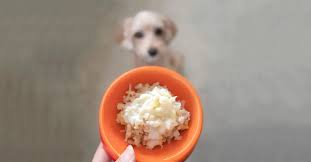Is Rice Good for Dogs? A Comprehensive Guide to Canine Nutrition
Dogs, our faithful companions, deserve the best in terms of nutrition. Yet, the question often arises: is rice good for dogs? In this comprehensive guide, we’ll delve into the world of canine nutrition to provide you with a clear understanding of whether rice is a suitable addition to your dog’s diet. Let’s explore the facts, benefits, and potential considerations for feeding rice to your furry friend.
Understanding Canine Dietary Needs
Before we discuss the merits of rice for dogs, it’s vital to grasp their essential dietary requirements. Dogs, like humans, need a balanced diet to thrive. This chapter will illuminate the key nutrients necessary for your canine companion’s well-being.
The Role of Rice in Dog Diets
Rice, a staple in many human diets, has also found its way into dog food bowls. But what exactly is the role of rice in a dog’s diet? In this chapter, we’ll uncover the nutritional profile of rice and how it can contribute to your dog’s overall nutrition.
Potential Benefits of Rice for Dogs
Rice, when included thoughtfully, can offer several potential advantages to your canine companion. From aiding digestion to providing energy, we’ll delve into the various benefits that rice can bring to your dog’s diet.
Risks and Considerations
While rice can be a valuable addition to your dog’s diet, it’s essential to be aware of potential risks and considerations. In this chapter, we’ll address concerns such as allergies, gluten sensitivity, and the importance of moderation when feeding your dog rice.

Rice Preparation and Feeding Guidelines
How you prepare and serve rice to your dog matters. In this chapter, we’ll provide practical advice on cooking rice, seasoning, and portion control. Learn how to make rice a safe and nutritious addition to your dog’s meals.
Special Diets and Medical Considerations
Rice can play a crucial role in special diets for dogs with specific health conditions. In this chapter, we’ll explore scenarios where veterinarians recommend rice as part of a tailored dietary plan. Discover how rice can aid dogs with unique medical needs.
Real-Life Dog Owner Experiences
Sometimes, the best advice comes from fellow dog owners who have walked a similar path. In this chapter, we’ll share real-life stories and testimonials from dog owners who have incorporated rice into their pets’ diets. Explore the positive outcomes and improvements observed in their dogs’ health and well
(FAQs) related to the topic of feeding rice to dogs
1. Can dogs eat rice safely?
Answer: Yes, dogs can safely eat rice as part of a balanced diet. Plain, cooked rice can be a beneficial addition to their meals.
2. Is rice suitable for all dog breeds?
Answer: Rice is generally suitable for all dog breeds. However, portion sizes may vary based on your dog’s size and dietary needs.
3. Can rice cause allergies in dogs?
Answer: Rice is considered a hypoallergenic grain and is less likely to cause allergies in dogs compared to wheat or corn. However, individual sensitivities can vary.
4. Should I feed my dog white or brown rice?
Answer: Both white and brown rice are safe for dogs, but brown rice is often preferred due to its higher fiber content and additional nutrients.
5. How should I prepare rice for my dog?
Answer: Cook plain rice without adding salt, seasonings, or spices. Ensure it’s well-cooked and easily digestible for your dog.
6. Can rice help with digestive issues in dogs?
Answer: Yes, plain rice can be helpful for dogs with upset stomachs. It’s easily digestible and can provide relief from diarrhea or vomiting.
7. How much rice can I feed my dog?
Answer: The amount of rice depends on your dog’s size and dietary requirements. Consult your veterinarian for specific portion guidelines.
8. Are there any risks associated with feeding rice to dogs?
Answer: While rice is generally safe, overfeeding can lead to weight gain. Additionally, dogs with diabetes may need to monitor their rice intake due to its carbohydrate content.
9. Can rice be part of a homemade dog food diet?
Answer: Yes, rice can be included in homemade dog food recipes. However, it should be balanced with other essential nutrients to meet your dog’s dietary needs.
Conclusion
As we conclude this comprehensive guide, we’ve explored the intricacies of including rice in your dog’s diet. In this final chapter, we’ll summarize key takeaways, empowering you to make informed choices regarding your dog’s nutrition. Remember, the key is balance and consultation with your veterinarian for tailored guidance.




